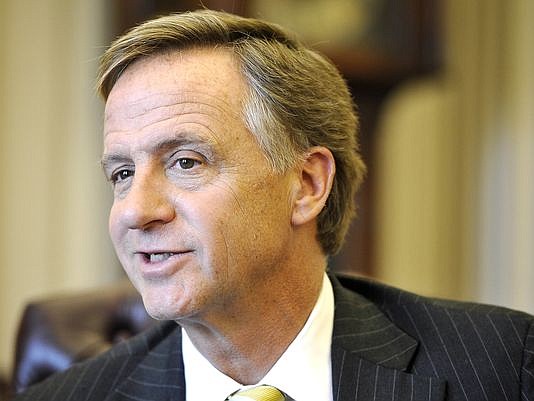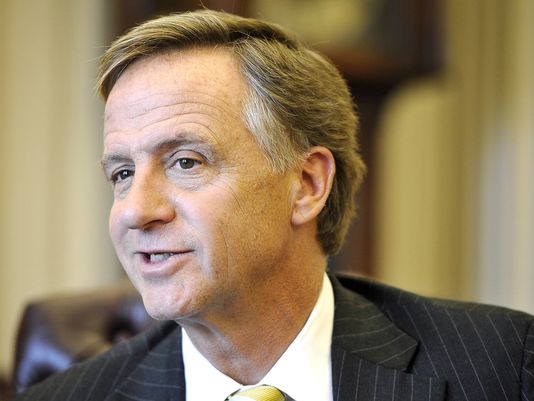Congressional responses
U.S. Sens. Lamar Alexander and Bob Corker both praised Haslam's plan in a joint press release. “Governor Haslam deserves credit for insisting upon a Tennessee plan that the state can afford, and Secretary Burwell deserves credit for being flexible enough to allow the governor to achieve that," Alexander said. Corker said he was glad the Obama administration "has finally allowed appropriate flexibility, and I'm pleased our state was able to adopt a solution that will build off of the innovative ways we deliver quality health care.”?
Tennessee Gov. Bill Haslam unveiled his proposed alternative to traditional Medicaid expansion, a two-year pilot program dubbed “Insure Tennessee.”
Haslam said the program “rewards healthy behaviors,” and “incentivizes choosing preventative and routine care instead of unnecessary use of emergency rooms.”
“We made the decision in Tennessee nearly two years ago not to expand traditional Medicaid,” Haslam said in a prepared statement. “This is an alternative approach that forges a different path and is a unique Tennessee solution.”
The Insure Tennessee program will set up two new coverage options for Tennesseeans below 138 percent of poverty — which is $16,100 for an individual and $27,300 for a family of three. The two prongs of the coverage are called the Volunteer Plan and the Healthy Incentives Plan or
The Volunteer Plan would provide a voucher to participants which they could put towards participating in their employer’s health insurance plan to pay for premiums and other out-of-pocket costs. The voucher will be valued at slightly less than the average TennCare per-enrollee cost.
All costs incurred in excess of the amount of the voucher are the responsibility of the participant.
The Healthy Incentives Plan, meanwhile, will grant participants coverage through a “redesigned component” of the TennCare program, which would introduce a cost-sharing model similar to Health Reimbursement Accounts, called “Healthy Incentives for Tennesseans (HIT) accounts.”
Newly eligible individuals who choose to participate in the TennCare program and whose incomes are above 100 percent of poverty will still be required to pay premiums and copays for services.
All enrollees, including those with incomes below poverty, will have “modest” pharmacy copays. The new model will allow TennCare members to “earn” contributions into their HIT accounts by “performing healthy behaviors.”
The governor said that the design of Insure Tennessee is “based on private market principles” that incentivizes participants to become more engaged in their health costs.
“Through both programs, Insure Tennessee introduces a commercial health insurance experience which can help Tennesseans prepare for independence from public assistance,” the governor's statement said.
Michele Johnson, executive director of the Tennessee Justice Center, which has advocated for expansion, said the group was “pleased” with Haslam's announcement.
“We will look closely at the details of the Governor's plan. Overall, we fully support its intention to keep Tennesseans' federal tax dollars in the state, cover working families and give them financial peace of mind, and support Tennessee's health care system on which we all depend,” Johnson said in a statement.
Approximately 142,000 Tennesseans could be eligible for coverage under the original Medicaid expansion rules set up by the federal government, the Kaiser Family Foundation has reported.
The program will not create any new taxes for Tennesseans and will not add any state cost to the budget. The Tennessee Hospital Association has committed that the industry will cover any additional cost to the state. The program will automatically terminate in the event that either federal funding or support from the hospitals is modified in any way.
The governor announced that he plans to call a special session to focus on the proposal after the 109th General Assembly convenes in January.
Follow the Times Free Press as this story develops.

